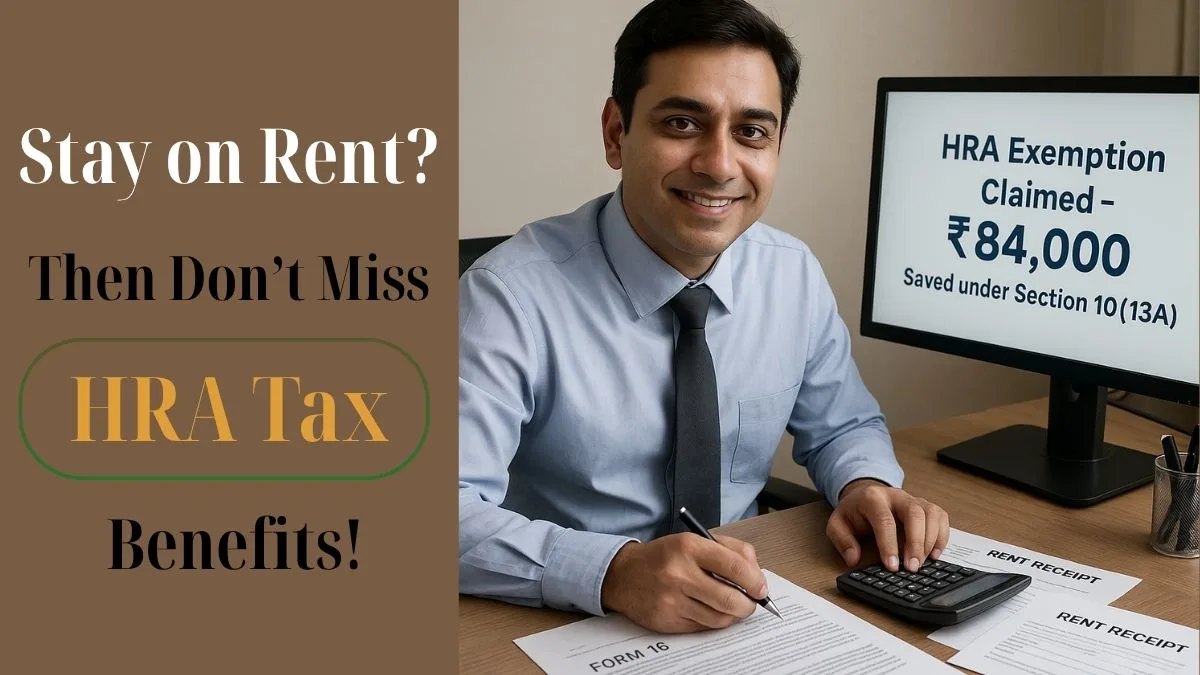
House Rent Allowance (HRA) is one of the most common salary components for salaried individuals in India. It is specifically designed to provide tax relief to those who live in rented accommodations. The HRA section in income tax allows salaried taxpayers to claim an exemption on the rent paid, which can lead to significant savings.
But here's the catch: HRA is not fully taxable. Depending on various conditions, HRA can be partially or fully exempt from taxes.
Let’s understand how the HRA section works & how you can make the most of it.
What is HRA?
HRA, or House Rent Allowance, is an allowance paid by employers to employees as part of the salary structure. It is meant to help cover the cost of renting a home. The good news? The HRA section in income tax provides relief by allowing a portion of HRA to be tax-exempt under Section 10(13A) of the Income Tax Act, read with Rule 2A of the Income Tax Rules.
When Can You Claim HRA Exemption?
You can claim HRA exemption only if:
- You receive HRA as part of your salary.
- You live in a rented house.
- You pay rent to the landlord.
- You are not living in your own house.
If all these conditions are met, you’re eligible to claim the HRA exemption."
How Much HRA is Exempt from Tax?
The exempt portion of HRA is the least of the following three:
- Actual HRA received from the employer.
- Rent paid minus 10% of basic salary.
- 50% of basic salary (for metro cities like Mumbai, Delhi, Kolkata, Chennai) or 40% (for non-metros).
Let’s break this down with an example.
Example to Understand HRA Exemption
Suppose Riya works in Delhi & has the following monthly salary structure:
- Basic Salary: ₹40,000
- HRA received: ₹20,000
- Rent paid: ₹22,000
Now, to compute her exemption:
- Actual HRA received = ₹20,000
- Rent paid – 10% of basic salary = ₹22,000 – ₹4,000 = ₹18,000
- 50% of basic salary = ₹20,000
The least of the above three is ₹18,000, so that amount is exempt from tax. The remaining ₹2,000 (₹20,000 – ₹18,000) will be taxable.
This clearly shows how HRA is not fully taxable & HRA can be partially or fully exempt from taxes, based on your rent & location.
What if You Don’t Get HRA?
If you're self-employed or a salaried individual who doesn’t receive HRA but still lives in rented accommodation, you can still claim a deduction under Section 80GG. However, the conditions & limits under Section 80GG are different & less generous.
Documents Required to Claim HRA
To claim HRA exemption while filing your Income Tax Return (ITR), you need:
- Rent receipts or rent agreement.
- PAN of landlord (if annual rent exceeds ₹1,00,000).
- Employer declaration (if applicable).
Make sure to keep proper proof, especially if you’re claiming a large exemption.
Common Mistakes to Avoid
- Claiming HRA without actually paying rent. This can lead to notices from the IT department.
- Not submitting the PAN of the landlord when the rent crosses ₹1 lakh annually.
- Not maintaining rent receipts or lease agreements.
These mistakes may lead to denial of exemption and unnecessary scrutiny."
Can HRA Be Fully Exempt?
Yes, HRA can be fully exempt from taxes if the rent paid is high enough & all the eligibility conditions are satisfied. However, in most cases, only a portion of HRA is exempt, making it vital to compute it properly before filing returns.
Final Thoughts
The HRA section in income tax is a useful provision that enables you to reduce your taxable income legally. With a clear understanding of eligibility, exemption limits, & documentation, you can make the most of this benefit. Always calculate your exemption carefully to avoid overpaying taxes.
Confused about how much HRA you can claim or how to include it in your ITR? Let experts at Callmyca.com guide you—because saving tax smartly starts with the right advice!











